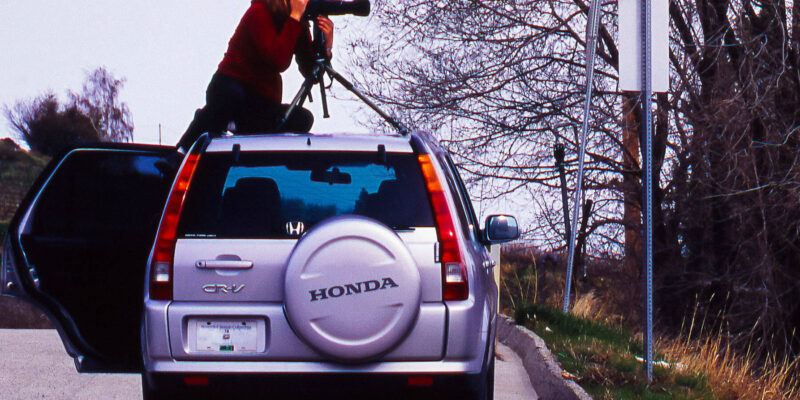It became impossible to write about my First Trip to Sedona without addressing the impact of 9/11 on travel and the economy. Turns out September 11, 2001 was a turning point in my sales career as well.

I left teaching in 1997 to pursue a career in the private sector. My first job as a Client Trainer for ADP Dealer Services was a big change in environment, especially when it came to the people I was teaching.
Car dealers are often referred to as “their own breed.” The key decision makers were typically men, with big personalities, and usually significantly older than me. At least they looked and behaved that way. Our apparent age difference was compounded by my appearance. I hadn’t changed much since my mid-twenties. I was often – at least initially – treated as if I was not to be taken seriously. The telltale signs were being kept waiting for scheduled appointments and constant interruptions. It was quite a switch from me being the one calling the shots in the classroom.
I had very little interaction with the owners of the business in my position as a trainer. It was rare for a dealer to come in for training, since most of them were hands off when it came to the transactions of the business. On the rare occasion when they did, you’d think it was a royal visit the way my coworkers fussed over them.
I far preferred working with the managers and front line employees. One after the other, their minds would either implode or explode in my training room when they realized what a big change they had coming. I had a lot of empathy for their position. They had no influence on the buying decision, and had to adapt or move on.
After 18 months of damage control and easing rooms full of angsty dealership employees through change, I saw an opportunity to make a different contribution. I applied for position in Sales.
The decision to allow my transfer wasn’t simple. My senior manager in the training department made it very clear he felt betrayed. He called me ambitious, and didn’t mean it as a complement. It seemed there was an unwritten – and definitely unspoken – rule about staying for two years in your position. He was furious because he didn’t feel he had recuperated his return on investment in me.
Admonishing me for my desire to leave his team so quickly, this up to this point very nice man drew back his facade and bared his teeth. He gave me a list of all the reasons he thought I was doomed to fail. His barely concealed tantrum strengthened my resolve to move on, and show him how wrong he was.
It wasn’t easy, but one by one, I’d visit our clients to introduce myself. I didn’t realize it at the time, but for some of the dealers I had won them over just by being brave enough to show up. I’d be met with a heavy dose of skepticism, and often be made to wait 10, 20, or 30 minutes past our appointed time before they would see me.
Once the formalities of sizing me up were over, the litany of complaints, challenges and past perceived injustices would follow. I would dutifully open up my leather clad notepad and start making a list. Most meetings concluded on a promise that I would see what I could do.
That part wasn’t much fun. The meetings were like mental and emotional tug of war, leaving me overwhelmed and drained. But I’d dutifully take my list back and do what I could on their behalf. I’d open up support cases, go to department managers, anything I could do to change the narrative of the relationship. It was an approach that didn’t make me very popular in-house, but it had the desired effect with my clients.
They began to trust me.
At some point, every sales training program will profess that people don’t like to be sold, but they like to buy from someone they know, like and trust. Trust was my strategy. I had no clue if or how I was going to reach my sales target, but I was determined to do my best. I wanted to go to Ireland.
Every year the company would award the salespeople who met their target a trip to President’s Club. The President’s Club destination for my first year of sales was Ireland. Every day that first year, I would chant Ireland, Ireland, Ireland to myself. I wanted to go to Ireland with a primordial urgency. It was the motivation I needed because at that point I hardly understood my compensation plan, with quota this and quota that. I just kept going and going. And going.
Even though I couldn’t see the way at the outset, one by one, all of the deals I had on the table closed in that final quarter. The reward of a trip to Dublin was mine – not just as Presidents Club, but as Rookie of the Year for North America. The hoopla of it all was actually kind of embarrassing because I was just doing my best.
My top performance had another consequence, in the guise of a promotion. In July 2001, my boss promoted me from the taking care of our clients role into a more competitive role. It was a move that was unpopular among my peers and many of the executives. In sales lingo, they were concerned that I was a farmer who loved taking care of people, not a hunter who would shoot for the kill.
I was full to the brim with newfound confidence and too inexperienced to see the problematic side of this “promotion.” I was uncomfortable with all the scrutiny, but remained optimistic.
The morning of Tuesday, September 11, 2001 started like many others. I had a sales demonstration scheduled. We preferred to have our demos in the comfort and convenience of the boardroom at our head office. It was easier to keep the attention of our prospective client while we showcased our offering without the hustle, bustle, and inevitable interruptions of the dealership environment.
Every once in a while a dealer would dig his heels in and insist we go to him. Sometimes it was a sign of a poor operator. They couldn’t or wouldn’t pull themselves away for a day. It could also mean that you were just there for pricing. In the lead up to the September 11 demo, my prospective client was exhibiting symptoms of both these conditions.



